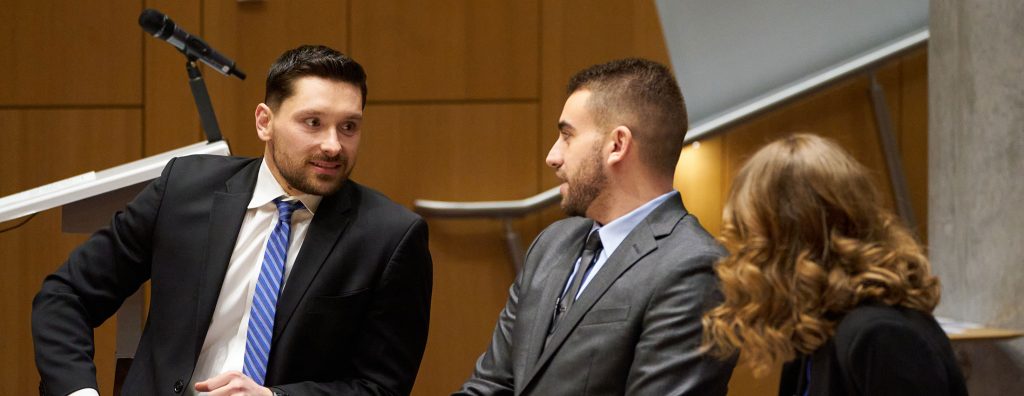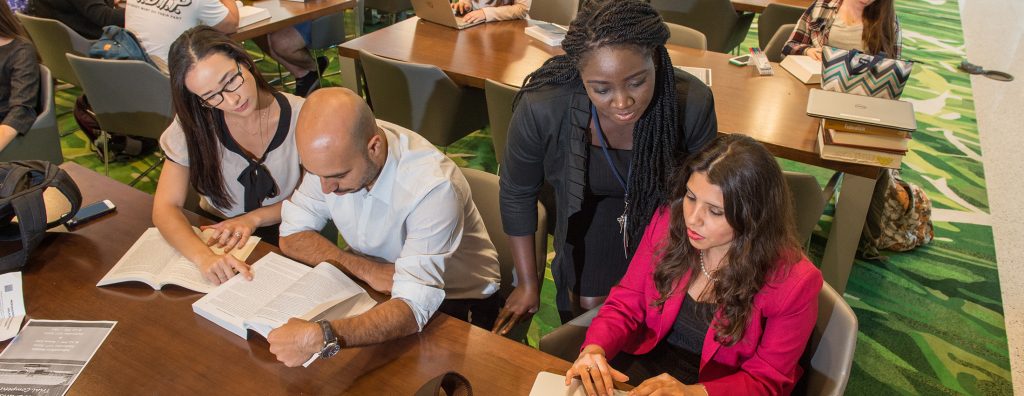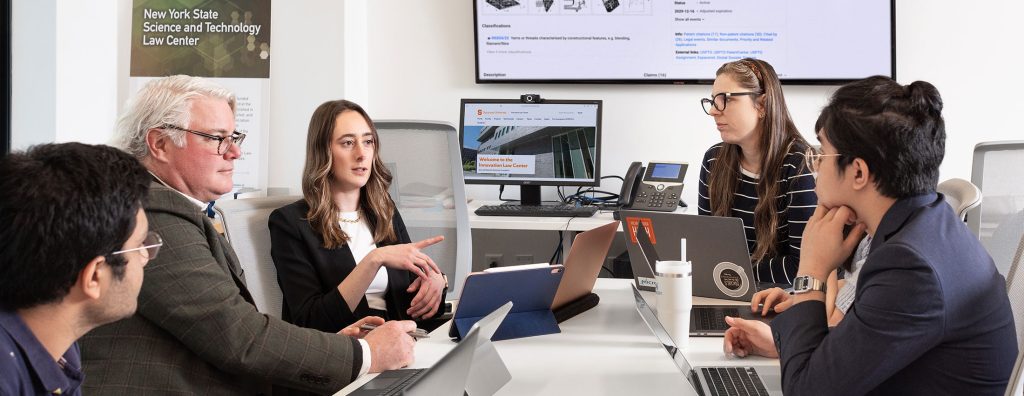Join Our Community of Aspiring Lawyers
Our On-Campus J.D. Program at Syracuse Law gives you the core knowledge, aptitude, and skills to build your career as a profession-ready lawyer in a broad spectrum of fields. An innovative approach to legal education, our vast and connected alumni network, and our focus on collaboration will help you create the foundation for a lifetime of success.
Areas of Excellence
Law intersects many different disciplines and fields of study. Starting in your second year, you’ll have the opportunity to explore specialized areas of the law tailored to your unique interests and career aspirations. Experiential learning opportunities in your specialty like clinic work, internships, and externships bridge the gap between theory and practice, preparing you for the realities of legal scenarios.
Our Areas of Excellence are specialties that distinguish Syracuse Law, taught by renowned scholars participating in cutting-edge research to seek solutions to the most complex challenges of our time.

Advocacy and Litigation
Develop your advocacy and litigation skills both in and outside of the classroom. Through a blend of intra- and inter-collegiate competitions, including pioneering virtual formats, you’ll have the chance to excel on a global stage. Our track record speaks for itself, with student advocates regularly winning major awards at regional, national, and international tournaments.
More About Advocacy and Litigation

Disability Law and Policy
Disability Law is a field that touches the lives of millions, ensuring that individuals with disabilities have equal access to opportunities, resources, and justice. Broaden your understanding of how disability intersects with various legal areas and prepare for a career in federal and state government offices, private firms, and public interest organizations focused on disability law, education, employment, civil rights, and international human rights.
More About Disability Law and Policy

Security Policy and Law
Immerse yourself in the crucial fields of national security, counterterrorism, cybersecurity, and intelligence law. This program is your gateway to a career where you can make a real impact on the safety and security of our nation. Through a combination of legal theory and practical application, you’ll explore a wide range of topics that shape the world today. Whether you’re drawn to cybersecurity, international conflicts, or the legal frameworks of national security, this program provides the skills and knowledge you need to excel.
More About Security Policy and Law

Technology Commercialization (Intellectual Property)
Study in the space where technology, law, and business converge, shaping the future of innovation. Through immersive classroom experiences and hands-on research projects, you’ll explore the intricate landscape of bringing groundbreaking technologies to market and uncover the secrets of tech commercialization while working with universities, federal labs, and cutting-edge startups.
More About Tech Commercialization
Additional Areas of Interest
- Corporate Counsel
- Entertainment and Sports Law
- Estate Planning
- Family Law and Social Policy
- Global Law and Practice
- Law, Politics and the Media

Orange Flex
Jumpstart your career by taking your last year of law school remotely, while working in a city of your choice. Combining online classes taken through our Online J.D. Program (JDinteractive) with an externship, Orange Flex gives you the opportunity to make connections and strengthen your professional networks in the community where you wish to work.
Residency Experiences for Global Learning
Experience the world of law through unrivaled, condensed residential courses that offer you valuable insights from alumni practitioners and foremost authorities across various legal subjects.
On-Campus J.D. students may choose to participate in upper-division “advanced legal topic” residency courses alongside their peers in the online JDinteractive program.
Residency students will have the opportunity to learn in esteemed law firms around the country or work alongside top-tier practitioners in the Syracuse area. You’ll also embark on exploration trips to major corporations, courts, and agencies, spanning cities such as NYC, D.C., Charlotte, Denver, Los Angeles, London, Geneva, Rome, and Strasbourg. Residency courses are credit bearing for On-Campus J.D. students. They are about a week in length, scheduled for August, early January, March, and April.

Learning Outcomes
As an On-Campus J.D. student, you will learn national and international legal doctrine, analysis of legal problems, statutory interpretation, legal writing and research, critical thinking and creative problem-solving, legal ethics, and practical application of the law.
Each of our graduates will:
- Demonstrate competence in the courses that are required of all students.
- Demonstrate competence in one or more specialized areas of U.S. or international law.
- Demonstrate understanding of the theories, historical development, and application of U.S. law.
- Demonstrate understanding of legal procedures and the basic structure of government.
- Identify the key facts, issues, reasoning, holdings, assumptions, and policies that underlie judicial decisions and independently critique them.
- Understand and apply principles of statutory interpretation.
- Determine the applicable legal rules from multiple sources of law and seek to reconcile any competing principles.
- When analyzing legal problems, graduates will identify relevant issues, apply governing law, anticipate contrary arguments, evaluate potential outcomes, and formulate coherent strategies.
- Be professional in their interactions.
- Advocate persuasively.
- Write accurately, follow accepted rules of grammar and citation, and use appropriate tone and organization.
- Find governing law and relevant secondary sources.
- Identify relevant facts, ascertain methods for discovering those facts, and evaluate the facts obtained.
- Propose solutions to problems that take into account applicable law, client interests, changed circumstances, alternative options, and practical constraints.
- Manage their time to meet deadlines.
- Identify and resolve ethical issues consistent with the profession’s ethical standards.
- Demonstrate commitment to the profession by helping to meet the legal needs of their communities and by promoting the fair administration of justice.
- Recognize differing perspectives in resolving legal issues.
